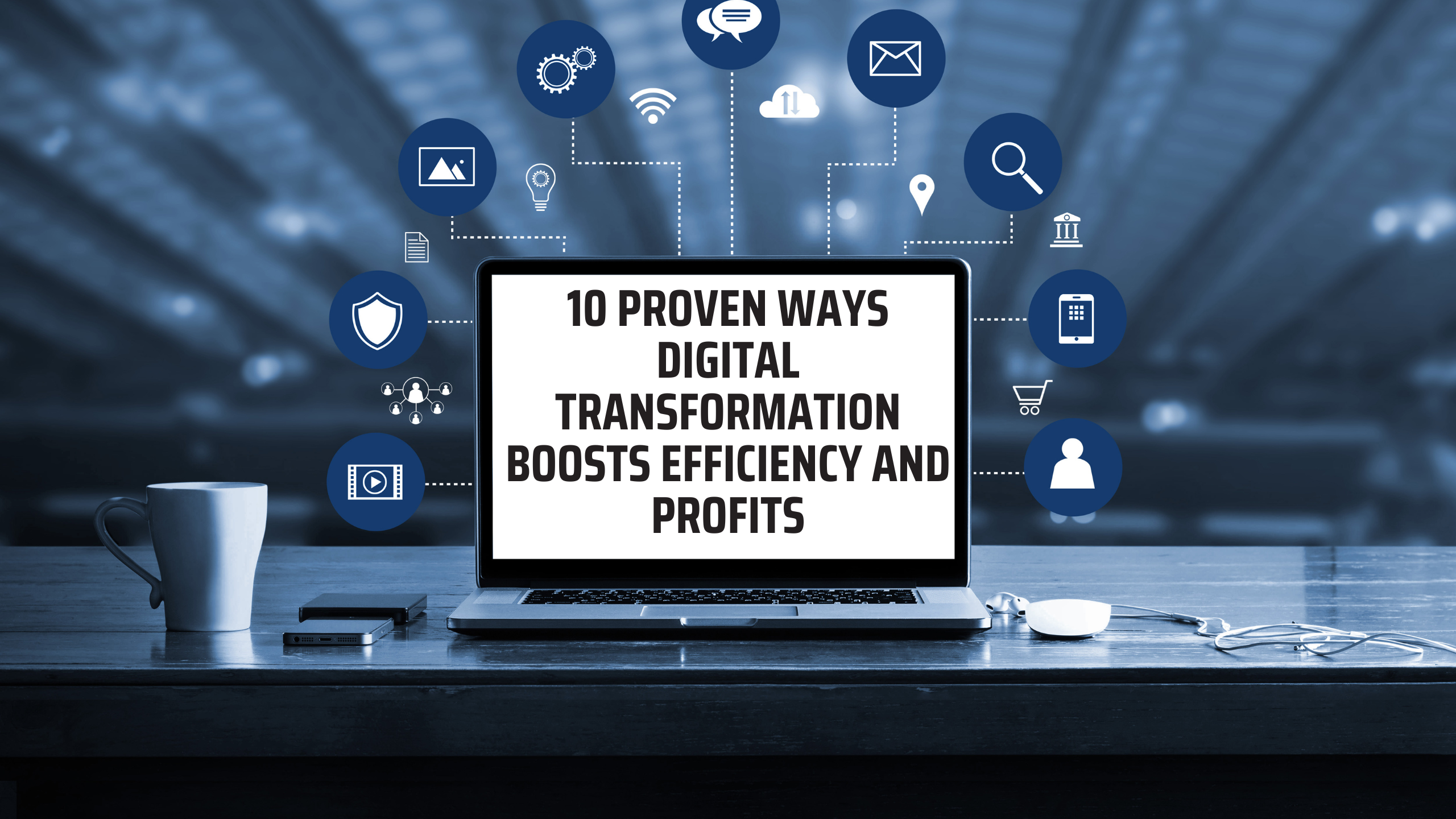In today’s fast-paced digital era, businesses are under constant pressure to innovate and optimize. Digital Transformation Strategy has emerged as a powerful approach to enhance productivity, streamline operations, and increase profitability. From leveraging advanced technologies to rethinking processes, digital transformation enables organizations to stay competitive in an evolving landscape.
Here are ten proven ways digital transformation can revolutionize efficiency and profits for businesses of all sizes.
1. Business Process Automation
One of the core components of digital transformation is Business Process Automation. Automation eliminates manual tasks, reduces human errors, and accelerates workflows, enabling businesses to focus on strategic initiatives.
Examples:
- Automating invoicing, payroll, and inventory management.
- Utilizing AI-powered tools for customer relationship management (CRM).
2. Enhanced Customer Experiences
Digital tools like AI chatbots, personalized marketing, and data analytics provide businesses with insights to cater to customer needs better. Improved customer satisfaction leads to increased loyalty and higher sales.
Impact:
- Faster response times.
- Tailored product recommendations.
3. Cloud Migration Benefits
Adopting cloud computing is a game-changer for businesses seeking scalability and cost efficiency. Cloud Migration Benefits include:
- Remote access to resources.
- Reduced IT infrastructure costs.
- Enhanced data security and disaster recovery.
Result:
Businesses save time and money while ensuring seamless collaboration across teams.
4. IT Modernization Services
Outdated IT systems can hinder progress. By upgrading infrastructure and adopting IT Modernization Services, companies can leverage:
- Faster system performance.
- Integration of emerging technologies.
- Reduced downtime and maintenance costs.
Case Study:
Organizations adopting modern IT systems report up to a 30% increase in operational efficiency.
5. Data-Driven Decision Making
Digital transformation provides businesses with access to real-time analytics, enabling them to make informed decisions.
Operational Efficiency Tools like business intelligence dashboards and predictive analytics empower organizations to:
- Identify trends and opportunities.
- Optimize resource allocation.
- Reduce waste and inefficiencies.
6. Remote Work Enablement
The rise of digital collaboration tools has made remote work a reality, boosting productivity and reducing overhead costs.
Key Technologies:
- Video conferencing platforms.
- Cloud-based project management software.
This flexibility improves employee satisfaction and fosters innovation.
7. Cybersecurity Improvements
Digital transformation prioritizes robust security measures to protect sensitive business data.
Benefits:
- Proactive threat detection.
- Compliance with industry regulations.
Enhanced cybersecurity builds trust with customers and partners, boosting the organization’s reputation.
8. Integration of AI and Machine Learning
AI and ML enable businesses to automate complex tasks, analyze vast datasets, and deliver personalized solutions.
Use Cases:
- Predictive maintenance in manufacturing.
- AI-driven marketing campaigns for targeted outreach.
These technologies drive efficiency, reduce costs, and improve decision-making processes.
9. Operational Efficiency Tools
Businesses leverage specialized tools to streamline operations and eliminate redundancies.
Examples:
- Enterprise Resource Planning (ERP) systems.
- Workflow management software.
These tools ensure smoother operations, faster delivery times, and reduced operational expenses.
10. Agility and Scalability
Digital transformation equips businesses with the ability to adapt quickly to market changes.
Strategies:
- Implementing agile methodologies.
- Utilizing cloud solutions to scale resources based on demand.
Being agile helps businesses respond to customer needs and market shifts with minimal disruption.
Conclusion
A well-executed Digital Transformation Strategy drives growth, streamlines processes, and boosts profitability. By embracing Business Process Automation, leveraging Cloud Migration Benefits, adopting IT Modernization Services, and utilizing advanced Operational Efficiency Tools, businesses can unlock their full potential in the digital age.
Investing in digital transformation isn’t just about staying relevant—it’s about thriving in a competitive landscape. Start your transformation journey today to achieve sustainable success.
